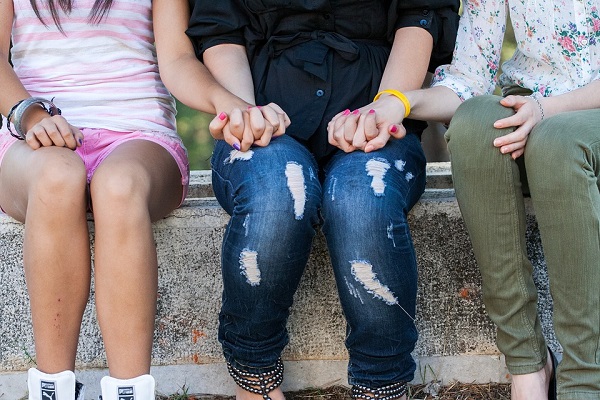Social and emotional learning for mental health and well-being

Recent statistics reveal a concerning trend in the mental health and well-being of children and young people in Europe and beyond.
- Around 20 % of school children experience mental health problems during their school years, with 50 % of mental health problems developing before the age of 14, and 75 % between the ages of 12–25 (WHO Regional Office for Europe, 2018).
- A study of 10,000 children aged 11–17 years, found that 1 in 5 reported growing up unhappy and anxious about the future because of bullying, academic pressure, and loneliness (UNICEF/ EU, 2021).
- Suicide is the leading cause of death among adolescents in low and middle-income countries and the second leading cause of death in high-income countries (WHO Regional Office for Europe, 2018).
These worrying figures stress the need for more caring and compassionate education systems to support the social and emotional needs of children and young people. Research shows that social and emotional learning (SEL) leads to increased positive attitudes, prosocial behaviour, and improved well-being and academic learning. It also reduces social, emotional, and behavioural difficulties such as anxiety, depression, suicide, substance abuse, and anti-social behaviour (Durlak et al, 2011; Goldberg et al, 2019; OECD, 2021). These positive outcomes have been observed from early childhood to secondary education across a range of cultural and socio-economic backgrounds.
The NESET report on strengthening SEL in the EU (Cefai et al, 2018) proposes a whole-school, systemic, andevidence-informed approach that combines a curricular approach with a positive school climate to improve learners’ and educators’ well-being. This approach engages the whole-school community, including staff, students, and parents, together with the local community and other stakeholders to facilitate SEL at different school levels:
- Curriculum: An SEL curriculum is skills based with an experiential approach to learning that develops both intra and interpersonal competences from early childhood to secondary education.
- Classroom and school climates: An SEL curriculum needs to be accompanied by positive classroom and whole-school climates where learners feel safe, included, and respected, and have a sense of belonging.
- Early intervention: SEL is most effective when started from early childhood education.
- Students’ voices: Students need to be actively engaged in developing, implementing, and assessing the curriculum.
- Targeted interventions: A universal approach to SEL should be accompanied by targeted interventions for vulnerable students who may need additional support.
- Teachers’ education and well-being: Teachers need training in facilitating SEL through their practice to develop their own social and emotional competences and take care of their health and well-being.
- Parental collaboration: Parental involvement is facilitated through a participatory approach where parents receive training to support their children’s SEL.
- Partnership with the local community and mental health professionals: The local community and other stakeholders are crucial resources within a systemic whole-school approach.
- Quality implementation: An effective SEL approach needs to be planned and implemented well with adequate training, resources, and support, and with the whole-school community actively engaged in its implementation.
- Adaptation to local context: Interventions need to be mindful of schools’ cultural contexts and students’ interests and needs through a bottom-up, participative approach.
Conclusion
The concerning statistics on children and young people’s mental health and well-being, and the consistent evidence that SEL helps to promote well-being and prevent the onset of mental health issues at critical periods in young people’s lives, highlight the need to reimagine education to reflect the realities and challenges of a post-COVID 21st century. The promotion of well-being and mental health within a whole school, systemic approach needs to be embedded as one of the primary objectives of education.
Carmel Cefai, PhD (Lond), FBPS, is Professor of Psychology and Director at the Centre for Resilience and Socio-Emotional Health at the University of Malta. He has researched and published extensively on issues related to social and emotional education and resilience. He started his career as a schoolteacher.
References
Cefai, C., Bartolo, P., Cavioni, V., & Downes, P. (2018). Strengthening social and emotional education as a key curricular area across the EU: A review of the international evidence. NESET Report. Luxembourg: Publications Office of the European Union.
Durlak, J. A.; Weissberg, R. P.; Dymnicki, A. B.; Taylor, R. D. (2011). The impact of enhancing students’ social and emotional learning: A meta-analysis of school-based universal interventions. Child Development, 82 (1), 474-501.
Goldberg, J. M., Sklad, M., Elfrink, T. R., Schreurs, K. M. G., Bohlmeijer, E. T. and Clarke, A. M. (2019). Effectiveness of interventions adopting a whole school approach to enhancing social and emotional development: a meta-analysis. European Journal of Psychology of Education, 34(4), 755–782.
OECD (2021) Beyond Academic Learning.
UNICEF and the European Union (2021) Our Europe, Our Rights, Our Future.
WHO Regional Office for Europe (2018). Adolescent mental health in the European Region.
WHO Regional Office for Europe (2020). Spotlight on adolescent health and well-being. Findings from the 2017/2018 Health Behaviour in School-aged Children (HBSC) survey in Europe and Canada International report.
Additional information
-
Education type:School Education
-
Target audience:Head Teacher / PrincipalSchool PsychologistStudent TeacherTeacherTeacher Educator
-
Target audience ISCED:Primary education (ISCED 1)Lower secondary education (ISCED 2)Upper secondary education (ISCED 3)

